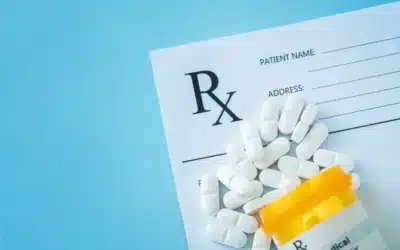Prescription Drug Abuse: The Hidden Epidemic
In today’s world, where discussions about drug abuse often revolve around illicit substances like heroin or cocaine, a silent epidemic continues to ravage communities worldwide: prescription drug abuse. Often underestimated and overlooked, this form of substance abuse poses significant risks to individuals and society at large. Delving into the prevalence and dangers of prescription drug addiction sheds light on this hidden epidemic. Providing resources for safe medication use and ways to cope helps ease the overall results of this epidemic.
Understanding the Scope
Prescription drug abuse involves the misuse of medications given by healthcare professionals. These medications, which are intended to alleviate pain, manage chronic conditions, or treat mental health disorders, can be highly addictive when used improperly. Commonly abused prescription drugs include opioids (such as oxycodone and hydrocodone), benzodiazepines (like Xanax and Valium), and stimulants (such as Adderall and Ritalin).
The prevalence of prescription drug abuse is staggering. According to the National Institute on Drug Abuse (NIDA), approximately 18 million people in the United States alone misused prescription medications at least once in 2019. This epidemic transcends geographical boundaries, affecting individuals of all ages, races, and socioeconomic backgrounds.
The Dangers of Prescription Drug Abuse
The dangers associated with prescription drug abuse are manifold and far-reaching. Some of the most common consequences include:
- Physical Health Risks: Prescribed medication being misused can lead to different physical threats depending on what the medication is:
- Opioids: Respiratory depression, sedation, constipation, and risk of overdose.
- Benzodiazepines: Drowsiness, dizziness, respiratory depression, and potential for overdose when combined with other substances.
- Stimulants: Increased heart rate, elevated blood pressure, risk of heart attack or stroke, and potential for cardiovascular complications.
- Addiction and Dependency: All three categories of prescription drugs carry a risk of tolerance, dependence, and addiction, leading to compulsive drug-seeking behavior and difficulty in quitting despite adverse consequences.
- Mental Health Impacts: Opioids and benzodiazepines can exacerbate symptoms of depression, anxiety, and other mental health disorders when used inappropriately. Stimulants may induce or worsen anxiety, paranoia, and psychosis, particularly with chronic misuse.
- Social and Behavioral Consequences: Prescription drug abuse can strain relationships with family, friends, and coworkers due to erratic behavior, mood swings, and neglect of responsibilities. Financial and legal difficulties may arise from excessive spending to maintain drug use and possession of medication without a valid prescription.
- Overdose and Death: Prescription drug overdose, especially opioids, is a significant concern, with the potential for respiratory depression, coma, and death. Combining prescription drugs with other substances, such as alcohol or illicit drugs, increases the risk of overdose and adverse reactions.
Promoting Safe Medication Use
It is imperative to promote safe medication use practices among patients and healthcare providers alike. This is the first step in preventing prescription drug abuse. Here are some key strategies:
- Educate Patients: Healthcare professionals should educate patients about the proper use, dosage, and potential risks of prescription medications. Clear communication about the importance of adhering to prescribed guidelines can help prevent misuse.
- Monitor Prescriptions: Physicians should closely monitor patients’ medication usage, especially for drugs with a high potential for abuse. Implementing prescription drug monitoring programs can help identify potential red flags and intervene early.
- Encourage Non-Pharmacological Treatments: Whenever possible, healthcare providers should explore non-pharmacological alternatives for managing pain and other conditions. This may include physical therapy, cognitive-behavioral therapy, or alternative medicine practices.
- Dispose of Unused Medications Safely: Proper disposal of unused or expired medications is crucial in preventing diversion and misuse. Patients should be encouraged to utilize drug take-back programs or follow FDA guidelines for safe disposal at home.
Recognizing Abusive Habits of Prescription Drugs
Prescription drug abuse can have devastating consequences. Recognizing the dangers and seeking help for substance misuse is crucial in preventing harm and promoting recovery. Being on the lookout for these habits is ideal for recognizing that there is a problem.
- Increased Dosage: Regularly taking higher doses of the medication than prescribed or consuming it more frequently to achieve desired effects or alleviate discomfort.
- Doctor Shopping: Seeking prescriptions from multiple healthcare providers to obtain larger quantities of the medication, often to fuel their substance use.
- Drug Hoarding: Stockpiling medications beyond what is needed for legitimate medical purposes, indicating a desire to maintain a constant supply for misuse.
- Mixing Substances: Combining prescription drugs with other substances like alcohol or illicit drugs to enhance their effects, despite the heightened risk of adverse reactions or overdose.
- Seeking Early Refills: Attempting to refill prescriptions earlier than scheduled or reporting false claims of lost or stolen medication to obtain additional doses ahead of time.
- Craving and Obsession: Experiencing intense cravings or preoccupation with obtaining and using the medication, leading to difficulties focusing on other aspects of life.
- Neglecting Responsibilities: Neglecting important obligations such as work, school, or familial responsibilities due to preoccupation with obtaining and using prescription drugs.
- Seeking Illegal Sources: Obtaining prescription drugs illegally, either through street dealers, online pharmacies without a legitimate prescription or by stealing medications from others.
These habits may vary depending on the specific type of prescription drug being abused and individual circumstances. From here, the next step is seeking support and recovery.
Resources for Support and Recovery
There are several resources available to support individuals in their recovery from prescription drug abuse. Some of these include:
- Substance Abuse Treatment Centers: Residential or outpatient treatment centers specializing in addiction recovery offer comprehensive programs tailored to the individual’s needs. These programs often include detoxification, therapy (such as cognitive-behavioral therapy or group therapy), medication-assisted treatment, and aftercare planning.
- Support Groups: Support groups like Narcotics Anonymous (NA) or SMART Recovery provide a supportive environment where individuals can share their experiences, receive encouragement, and learn coping strategies from others who have gone through similar struggles.
- Therapy and Counseling: Individual counseling or therapy sessions with a licensed therapist or counselor trained in addiction treatment can help individuals explore underlying issues contributing to substance abuse, learn healthy coping skills, and develop strategies for relapse prevention.
- Medication-Assisted Treatment (MAT): MAT involves the use of medications, such as buprenorphine or naltrexone for opioid addiction, or acamprosate for benzodiazepine or stimulant addiction, to help manage withdrawal symptoms, reduce cravings, and support long-term recovery.
- Community-Based Programs: Community organizations, churches, and nonprofit agencies may offer addiction support groups, educational workshops, and other resources to assist individuals in their recovery journey.
- Family and Friends: Building a strong support network of family members, friends, and loved ones who understand and support the individual’s recovery goals can be invaluable. Open communication, empathy, and encouragement from loved ones can play a significant role in maintaining motivation and resilience during the recovery process.
Advanced Addiction Center, Here to Help with Prescription Drug Abuse
Here at Advanced Addiction Center, we have a variety of these programs and are here to help you combat prescription drug abuse. Here, we understand that prescription drug abuse is a multifaceted issue with profound implications for public health and individual well-being. By raising awareness about the prevalence and dangers of prescription drug addiction and promoting safe medication use practices, we can work towards mitigating this hidden epidemic. Remember, if you or someone you know is struggling with prescription drug abuse, help is available. Reach out, to use and seek support, and take the first step toward recovery. Together, we can combat this silent scourge and nurture healthier, drug-free communities for generations to come.







